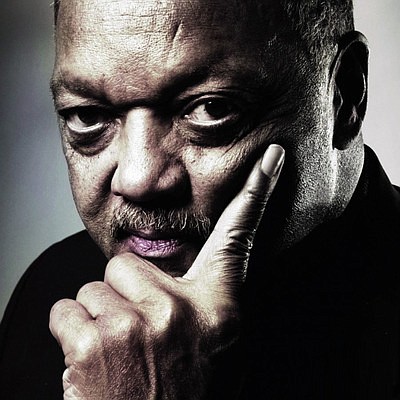Judge Ketanji Brown Jackson and Ginni Thomas
Jesse Jackson | 4/1/2022, 7:45 a.m.
Last week, two events involving the U.S. Supreme Court occurred.
First, four days of hearings surrounding the nomination and possible elevation of Judge Ketanji Brown Jackson to the nation's highest court.
Second, 29 dangerous and wacky emails sent from conservative activist Virginia Thomas, wife of Supreme Court Justice Clarence Thomas, to White House Chief of Staff Mark Meadows urging him to take illegal and unconstitutional actions to preserve Donald Trump's presidency.
Both involve politics and will impact the integrity of the Court.
President Joe Biden nominated Judge Jackson to be the first African American woman to serve on the nation's highest court. She appeared before the Senate Judiciary Committee allegedly to answer questions about her views and qualifications to be confirmed.
Judge Jackson's qualifications appear impeccable: clerking for judges on all three federal levels of our courts, District, Appellate and Supreme Court; work as a federal public defender; confirmed three times by the U.S. Senate for service on the U.S. Sentencing Commission, a DC district judgeship, and as a DC appellate judge; highly intelligent; educational achievements that anyone would be proud of; and a deeply religious woman who has never been tainted by scandal or corruption of any kind.
One would expect legitimate and tough questions, and cogent and thoughtful answers, in order for senators and the American people to make a judgment about her appointment.
Not so for this partisan and equally divided committee of 22 Democrats and Republicans. Of the 11 Republicans, seven are from former slave states: Lindsey Graham, South Carolina; Tom Cotton, Arkansas; Ted Cruz, Texas; John Kennedy, Louisiana; Marsha Blackburn, Tennessee; Tom Tillis, North Carolina, the former state senator wrote the voting rights legislation that an Appellate Court found targeted Black voters "with almost surgical precision"; and Josh Hawley of Missouri, a former slave state that did not join the Confederacy.
Those seven were the worst questioners and could not stop themselves from reflecting racism, sexism, past grievances, and bad manners.
Sen. Graham complained that his choice from South Carolina was not selected, constantly interrupted Judge Jackson, reminded Democrats of his grievance about how Democrats treated Judge Kavanaugh - without mentioning the accusation of a credible female witness accusing Kavanaugh of rape at a drunken party they attended in high school - inappropriately asked Judge Jackson about her religion, accused her of being an activist, attributed her nomination to being bankrolled by dark money from the radical left, used foul language, went way over his allotted time for questioning, had to be shut down by Chairman Durbin, and ended up storming out of the hearing.
Sen. Cruz tried to turn her into a Black radical who would use the Court to affirm "critical race theory." He asked her if she agreed with Dr. Ibram X. Kendi's book "Antiracist Baby," "that babies are racist." He too got into a shouting match with Chairman Durbin. Sen. Blackburn demanded that Judge Jackson take a position on whether the Court should be expanded beyond the current nine, a political and policy question, not a question appropriate for a Supreme Court nominee.
The dominant question from virtually all the Republicans was her sentencing record, alleging she was soft on crimes involving child pornography. Sen. Cotton accused her of being "soft on crime" and "soft on porn."
Virginia Thomas also made news last week with some unlawful and crazy texts to Mark Meadows, "Help This Great President stand firm, Mark!!! ... The majority knows Biden and the Left is attempting the greatest Heist of our History."
"This is a fight of good versus evil," Meadows wrote back. "Evil always looks like the victor until the King of Kings triumphs. Do not grow weary in well doing. The fight continues. I have staked my career on it."
Thomas replied: "Thank you!! Needed that! This plus a conversation with my best friend just now ... I will try to keep holding on. America is worth it!"
She also supported discredited QAnon conspiracy theories. It is thought that her "best friend" was Clarence Thomas, alone among the justices who voted against releasing Meadow's texts to the January 6 Select Committee that contained the texts from his wife.
The questions now are whether she should testify before the January 6 Committee, demand that her husband rescind himself involving January 6 issues, resign or be impeached.
Both events are important because they will help to judge the nonpartisan trustworthiness and credibility of one of the most important institutions in our society, the Supreme Court of the United States.
You can write to the Rev. Jesse Jackson in care of this newspaper or by email at jjackson@rainbowpush.org. Follow him on Twitter @RevJJackson




